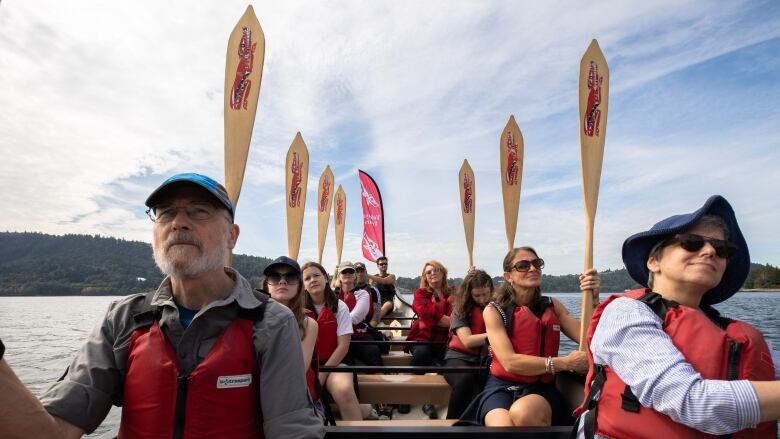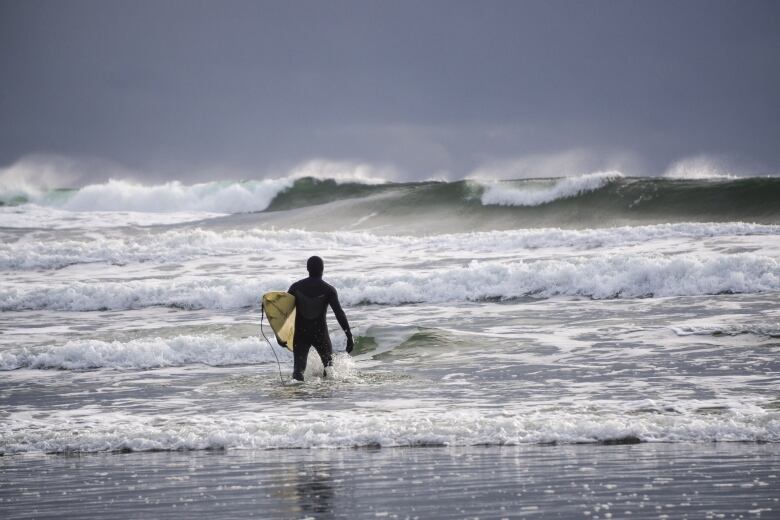Indigenous tourism industry sets sights on local travellers for summer season
'If people want history, you don't need to travel far.'

Mike Willie's summers are usually spent guiding European tourists on wildlife excursions through the Great Bear Rainforest where he grew up on B.C.'s Central coast.
Not this year. The owner of Sea Wolf Adventures in Port McNeilon northern Vancouver Islandand a member of the Musgamagw Dzawada'enuxw First Nation says he was shocked to see his summer season wither away because of COVID-19.
He's one of several Indigenous tour operators and business owners who hope British Columbiansmake up for an unconventional tourism season by exploringtheir own province this summer and learnsomeIndigenous history while they're at it.
"Many people travel overseas to witness and take part in ancient cultures. But ... the culture here is at least 14,000 years," he told CBC's All Points West.
"If people want history, you don't need to travel far."
Indigenous tourism was a rapidly-growing $705-million industry before the pandemic.
Now, the industry is putting the finishing touches on safety measures as it prepares for local tourists instead.
Paul Cox, manager of the Kwa'lilas Hotelin Port Hardy, also on north Vancouver Island,says he's relying on the support of locals. The hotel recently reopened its restaurant with physical distancing and increased cleaning.

Some communities are banking ontourism as a future driver of its economy.
The Kwiwasut'inuxw Haxwa'misFirst Nation off northern Vancouver Island has its sights set on ecotourism after recently buying Pierre's Marina at Echo Bay.
The full-service marina and lodge in the Broughton Archipelago provides essential services and will host tourists in the summer, thenprovide accommodation for forestry workers in the winter.
Elected Chief Rick Johnson said the First Nation has used the bay for thousands of years. He envisions sharing a part of his ancestors' history with the world throughtours where guests can glimpse grizzly bears and 800-year-old cedar trees.
"We were traditionally fishermen and loggers," he said.
"Now both industries have made a big decline. Tourism is something we know is going to grow in the province of British Columbia."
Travellers need to do their homework, Tofino mayor says
SomeIndigenous communities aren't yet prepared to welcome any visitors to their communities.
This week, theNuu-chah-nulth Tribal Council (NTC), representing 14 First Nations along 300 kilometres of territory on western Vancouver Island, passed a motion prohibitingvisitors on itslanduntilthe health and safety of its own memberscan be guaranteed by the province.
TofinoMayor Josie Osborne and Ucluelet Mayor Mayco Noel say they're working with the NTCon what this means for summer tourism and on communication to ensure tourists understand the wishes of the communities.
Osborne said she's confident Tofino and Ucluelet are on track to reopen once B.C. enters Phase 3 of its pandemic restart plan, but questions remain about the broader territory inBarclay Sound and Clayoquot Sound.
There will be "housekeeping rules" for tourists and some beaches may be closed off, Noel said.
"I would ask travellers to do your homework. Ask lots of questions. Be patient when you get here," Osborne said.
"It's a really good example for our society to really embrace principles of collaboration and reconciliation and continue to learn about each other and conduct tourism better."
With files from All Points West, On The Island












_(720p).jpg)


 OFFICIAL HD MUSIC VIDEO.jpg)
.jpg)



























































































